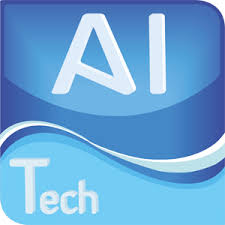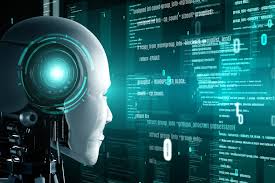The Impact of AI Technology on Modern Society
Artificial Intelligence (AI) technology is transforming the world at an unprecedented pace. From revolutionising industries to altering daily life, AI is at the forefront of technological advancement. This article explores the various ways AI technology is impacting modern society and what the future might hold.
AI in Healthcare
One of the most promising applications of AI technology is in healthcare. AI algorithms are being used to analyse medical data, predict patient outcomes, and even assist in surgeries. By improving diagnostic accuracy and personalising treatment plans, AI has the potential to enhance patient care significantly.
Transforming Industries
Industries across the board are experiencing transformation due to AI technology. In manufacturing, AI-powered robots are increasing efficiency and precision on production lines. In finance, machine learning algorithms are being used for risk assessment and fraud detection. Retailers are leveraging AI for inventory management and personalised marketing strategies.
The Role of AI in Daily Life
AI technology has also become an integral part of everyday life. Virtual assistants like Siri and Alexa help manage tasks with voice commands, while recommendation systems on streaming platforms provide personalised content suggestions. Moreover, AI-driven navigation apps optimise travel routes based on real-time traffic data.
Challenges and Ethical Considerations
Despite its benefits, AI technology presents several challenges and ethical concerns. Issues such as data privacy, algorithmic bias, and job displacement need careful consideration. It is crucial for policymakers and technologists to work together to ensure that AI is developed responsibly and equitably.
The Future of AI Technology
The future of AI technology holds immense potential. As research continues to advance, we can expect even more sophisticated applications across various domains. However, it remains essential to balance innovation with ethical considerations to harness the full potential of this transformative technology.
In conclusion, AI technology is reshaping society in numerous ways. By understanding its impact and addressing its challenges, we can ensure that it continues to be a force for good in the world.
Exploring AI Technology: Key Questions and Insights
- What is artificial intelligence (AI) technology?
- How is AI technology being used in healthcare?
- What industries are benefiting from AI technology?
- What are the ethical concerns surrounding AI technology?
- How does AI impact job roles and employment?
- Can AI algorithms be biased? How is bias addressed in AI technology?
- What advancements can we expect in the future of AI technology?
What is artificial intelligence (AI) technology?
Artificial Intelligence (AI) technology refers to the creation of computer systems capable of performing tasks that typically require human intelligence. These tasks include problem-solving, decision-making, language understanding, and visual perception. AI systems are designed to learn from data, adapt to new inputs, and improve their performance over time without explicit programming for each task. By leveraging advanced algorithms and vast amounts of data, AI technology can automate complex processes, enhance productivity, and provide insights across various fields such as healthcare, finance, and transportation. As a rapidly evolving discipline, AI continues to push the boundaries of what machines can achieve in mimicking human cognitive functions.
How is AI technology being used in healthcare?
AI technology is revolutionising healthcare by enhancing diagnostic accuracy, streamlining administrative processes, and personalising patient care. Machine learning algorithms analyse vast amounts of medical data to identify patterns that might be missed by human eyes, leading to early detection of diseases such as cancer. AI is also employed in predictive analytics to forecast patient outcomes and optimise treatment plans. In addition, AI-powered virtual assistants are improving patient engagement by providing instant access to medical information and appointment scheduling. Furthermore, robotic surgery systems equipped with AI offer greater precision and control during complex procedures, reducing recovery times and improving overall patient outcomes. As AI continues to evolve, its integration into healthcare promises even more advancements in medical research and practice.
What industries are benefiting from AI technology?
AI technology is revolutionising a wide array of industries, bringing significant benefits and advancements. In healthcare, AI is enhancing diagnostic capabilities and personalising treatment plans, leading to improved patient outcomes. The manufacturing sector is experiencing increased efficiency and precision through AI-powered automation and robotics. In the financial industry, AI algorithms are streamlining processes such as fraud detection and risk management, while also enabling more personalised banking experiences. The retail sector benefits from AI through enhanced inventory management systems and targeted marketing strategies that improve customer engagement. Additionally, the transportation industry is leveraging AI for optimised route planning and the development of autonomous vehicles. These examples illustrate just a few of the many sectors where AI technology is driving innovation and improving operations.
What are the ethical concerns surrounding AI technology?
The ethical concerns surrounding AI technology are multifaceted and complex. One major issue is the potential for bias in AI algorithms, which can lead to unfair treatment or discrimination if the data used to train these systems reflect existing prejudices. Privacy is another significant concern, as AI systems often rely on vast amounts of personal data, raising questions about how this information is collected, stored, and used. Additionally, there is the risk of job displacement as AI systems become more capable of performing tasks traditionally done by humans, potentially leading to economic disruption and inequality. Furthermore, the lack of transparency in decision-making processes by some AI systems can make it difficult to hold them accountable for their actions. As AI technology continues to evolve, it is crucial for developers, policymakers, and society at large to address these ethical issues proactively to ensure that AI benefits everyone fairly and equitably.
How does AI impact job roles and employment?
AI technology is significantly reshaping job roles and employment across various sectors. While it automates routine and repetitive tasks, leading to concerns about job displacement, it also creates new opportunities and demands for skills in AI development, maintenance, and oversight. Many industries are experiencing a shift where AI complements human capabilities, allowing workers to focus on more complex and creative tasks that require critical thinking and emotional intelligence. This transition necessitates a workforce that is adaptable and continuously learning, as roles evolve to integrate AI tools effectively. Consequently, there is an increasing emphasis on upskilling and reskilling programmes to prepare employees for the changing landscape of employment driven by AI advancements.
Can AI algorithms be biased? How is bias addressed in AI technology?
AI algorithms can indeed be biased, as they often learn from data that may reflect existing prejudices or inequalities present in society. Bias in AI can manifest in various ways, such as favouring certain demographic groups over others or producing skewed outcomes. Addressing bias involves multiple strategies, including ensuring diverse and representative training data, implementing fairness constraints during the development of algorithms, and conducting regular audits to identify and mitigate any unintended biases. Additionally, transparency in AI processes and involving interdisciplinary teams can help create more equitable AI systems. It is crucial for developers and organisations to remain vigilant and proactive in addressing bias to ensure that AI technology is fair and inclusive for all users.
What advancements can we expect in the future of AI technology?
In the future of AI technology, we can anticipate significant advancements that will further integrate AI into various aspects of daily life and industry. One major area of development is in autonomous systems, such as self-driving vehicles and smart cities, which will enhance efficiency and safety. Additionally, AI is expected to revolutionise healthcare through improved diagnostic tools and personalised medicine driven by advanced data analytics. Natural language processing will continue to evolve, making interactions with machines more intuitive and human-like. Moreover, AI’s role in environmental sustainability could expand, with innovations aimed at optimising energy use and managing resources more effectively. As these advancements unfold, ethical considerations will remain crucial to ensure that AI technologies are developed responsibly and benefit society as a whole.




